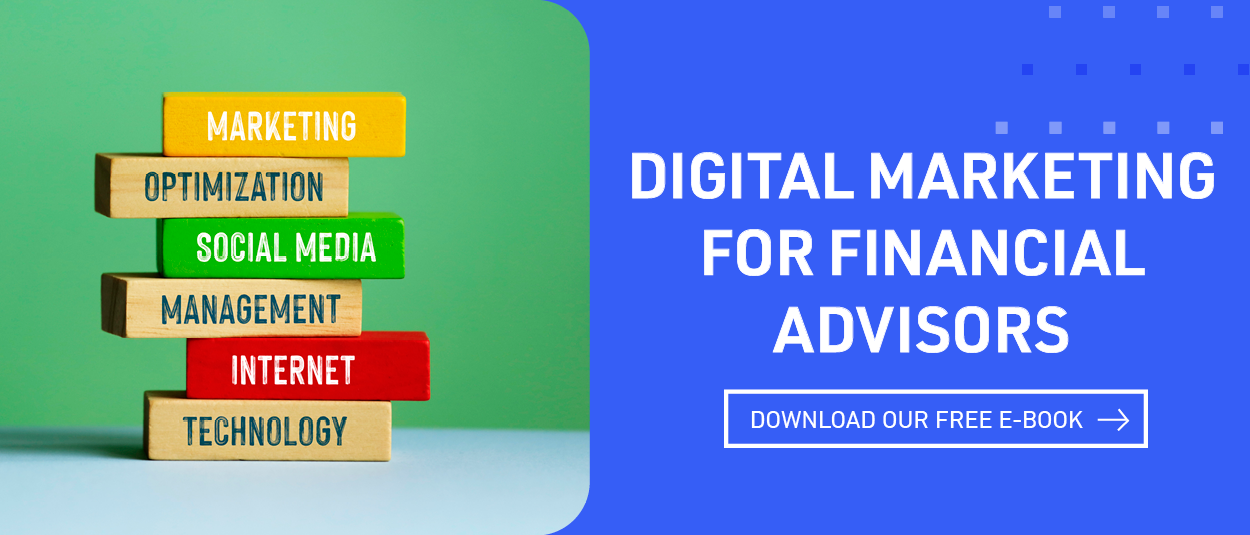

Can Financial Advisor Marketing Build Trust On The Internet?
The experts say money moves on trust. That is, investors move their assets to new financial advisors when the two parties have established a reasonable amount of trust. Conversely, investors do not select financial advisors they do not trust.
Also, investors tend to trust the people they like. For example, they do not believe people they like will exploit them. This makes building an initial bond an important marketing practice for advisors that want to use online marketing to promote their services.
When do financial advisors start building trust? We believe building trust starts when advisors market their services online. Why? Because that is where increasing numbers of investors are finding financial advisors and conducting their research. What they see online determines who they contact for interviews.
Why is trust an integral part of financial advisor marketing?
Building trust online should be critical to a successful advisor marketing strategy. In fact, trust is the foundation for strong relationships between investors and financial advisors.
Can blog content help financial advisors build trust?
Building trust with blog content is one of the best ways to connect with your audience, build your brand, increase conversion rates, and promote longevity in your client base.
Who writes financial blog articles? Experts write articles that make advisors published authors when their content is published online.
When it comes to building trust through blog articles and other written content (website, eBooks), there are some key elements advisors should keep in mind during the writing process.
How does storytelling help financial advisors market their services online?
Investors tend to engage more with stories online than a boring set of generic facts or opinions because they can relate better on a personal level. Storytelling is even more effective when they feel they have been taken on an emotional journey or have been provided valuable insight into a particular advisor's reason for being.
Smaller RIAs and other advisory firms may benefit more than larger firms that can afford to spend large sums of money building brand awareness. Smaller firms are better able to relate to investors on a personal level.
Why do we believe this is true? Because a high percentage of investors tend to select the financial advisors they like the best. Who they like is based on subjective criteria - for example, the story.
Effective storytelling can also be a way to convey complex ideas while also gaining traction from potential clients who are seeking a personal connection with their advisors.
For example, when advisors craft stories for blog articles, they should use vivid descriptions that transport readers right into the heart of what's happening. This way, they become fully engaged in the narrative while still learning more about the advisory firm that published the content.
Why is transparency important for financial advisor marketing?
Being transparent and honest with investors is a key component of building trust. What advisors disclose on their websites has a major impact on their credibility which in turn impacts their trustworthiness.
What you don't communicate is equally important. In particular, if other advisors are disclosing this information to investors on their websites, blog articles, pillar pages, and eBooks.
Financial advisors build trust when they practice transparency because they are showing investors they are not just trying to sell them investment advice and services. An important marketing practice is full transparency, so investors learn to trust advisors from the inception of their contact with each other.
Additionally, it can help advisors build respect for their brands because investors feel more connected to firms that provide real insights into their processes and operations rather than just sales pitches.
How does authenticity impact the marketing practices of financial advisors?
Target audiences of investors tend to respond better when content is authentic, objective, and sincere. After all, advisors are asking investors to trust them with their future financial security. This is like trusting a doctor with your physical well-being, except you are trusting an advisor with your financial well-being.
Financial advisor marketing does not need extraordinary content, but it does help when genuine descriptions of vital information impact an advisor's potential clients. For example, financial advisors may not disclose how much they are compensated but should describe how they are compensated.
Authenticity can also help investors relate to the real person or team of professionals behind the website content, blog articles, pillar pages, social media posts, and eBooks. The tone of voice can also be important when advisors describe important financial principles and practices. Never talk down to readers.
Also, remember that when it comes to writing content, it's better to focus on quality rather than quantity - as long as you're providing helpful and informative information, readers will appreciate it and keep coming back to learn more!
How does credibility build trust online?
Investors want to select financial experts they can trust. It sounds simple enough, but there is no easy way to measure the trustworthiness of financial advisors.
A common marketing tactic emphasizes their fiduciary status, fee-only compensation, and independence. However, these characteristics differ less when many financial advisors market the same credentials.
Where are the differentiating characteristics? Credibility should be at the top of the list. What do investors see when they visit your website? Does your website deliver the right information? Is access to your information fast and efficient? What do they see when they Google search your name? You can imagine the consequences when investors can't find the information they seek.
Conclusion: Who do investors trust with their money?
By utilizing these tactics in your blog content, you can build trust with readers over time, leading to greater loyalty and brand recognition when you market your financial advisor firm. It may take some time before significant results are seen, but using quality storytelling techniques, transparency, and authenticity will go a long way in helping you build trust with your target audience.

Jack Waymire, BA, MBA
Search Here
Categories
- AI (18)
- blogging (2)
- branding (1)
- content (12)
- custodians (1)
- Digital (436)
- email marketing (3)
- fcmo (2)
- fees (1)
- financial advisor marketing (68)
- Google (3)
- Ideas & Tips (109)
- Investor Experience (7)
- lead generation (7)
- linkedin (1)
- Marketing (488)
- newsletters (1)
- Online Transparency (2)
- podcasting (1)
- search engine optimization (3)
- seo (9)
- Social Media (2)
- video (3)
- Websites (145)
- YouTube channel (2)
Recent Posts
-
 November 24, 2025
November 24, 2025 -

Top 5 Ways Digital Marketing Benefits Financial Advisors Seeking Leads
November 20, 2025 -

Trust Is The Biggest Online Marketing Challenge For Financial Advisors
November 17, 2025 -

Compliant Financial Advisor Bios Using AI Website Builders
October 22, 2025 -


